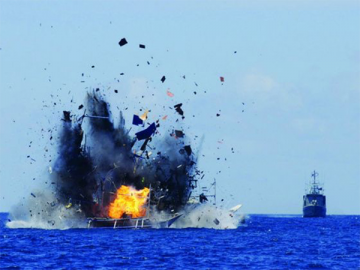Miners, Minerals and Minamata: Interdisciplinary Perspectives on ASGM and Sustainable Development
Join us for a Policy@UBC and CIRDI seminar series event with Kirsten Dales, Director, Program Development, Canadian International Resources & Development Institute (CIRDI).
12:30 – 1:45 pm
Thursday, October 26th
Caseroom – Liu Institute for Global Issues
Light refreshments offered.
The Artisanal and Small-scale Gold (ASGM) mining sector represents the largest source of anthropogenic mercury emissions globally. Despite known health and environmental impacts of mercury and its use in gold recovery, it remains widely used in ASGM due to its ease of use, fast returns and accessibility of mercury through informal trade networks. ASGM supports at least 20 million livelihoods, including >3 million women and children accounting for an estimated 15-30% of global gold production and 80% of all ASM activity for metals (excluding diamonds and gemstones). The artisanal mining of gold provides a significant source of income for rural communities compared to agriculture, fishing or forestry, but has been traditionally been viewed in a problem vs. a legitimate livelihood opportunity.
Consequently, ASGM has received a smaller proportion of development aid relative to its contribution towards poverty alleviation in Asia, Latin America and Sub-Saharan Africa. In recent decades, academic institutes, the United Nations, and development agencies promote advancement of ASGM as a rural livelihood strategy, with a growing body of literature and continued development of best practices to minimize adverse social and environmental impacts. Despite recent progress, complex challenges remain for scientists, practitioners, policy makers, bi-lateral and multi-lateral cooperation to support miners in the reduction and eventual elimination of mercury use in ASGM at global, regional and local scales.

October 19 2017
| Don’t miss this one day workshop where best practices will be examined through the lens of Environmental Assessment cases.
Offered through Simon Fraser University’s Faculty of Environment’s Professional Programs. |
Understanding Environmental Assessment Today: Cases and Issues
Instructor Chris JosephThursday, October 26, 2017; 9:00am to 4:00pm
Simon Fraser University, Wosk Centre for Dialogue, 580 West Hastings, VancouverJoin Chris Joseph, MRM, PhD, as he leads environmental managers, consultants and others concerned about Environmental Assessment. Chris will shares his deep knowledge of a broad and comprehensive definition of what a good environmental assessment (EA) process looks like. Drawing from research and professional experience Chris will engage the participants in an in-depth learning conversation about EA and megaproject planning, international development, risk, stakeholder, expert, law, and findings from a survey of EA experts across Canada.Sign up today! |
|
|
|
|
| Course Objectives |
| What you will learn through presentations, class discussion and learning activities:
1. Review of EA Process (BC and Federal Cases)
2. Mechanics, Parties to an EA process
3. Provincial and Federal processes (in parallel)
4. Aboriginal (S.35) Issues
5. Best Practices Research
6. Current Issues and Cases
- First Nations Shaping the EA Process – Ajax Mine, Kamloops
- The Place of Social License – Enbridge Northern Gateway
- The Question of Benefits – Kinder Morgan TMEP
- Federal Reviews (Major project review process) New Directions
- Project Level EA Vis-à-vis Regional Cumulative Effects Management Systems – Natural Gas Development in Northern BC
|
|
|
|
|
| About Chris Joseph |
| Chris Joseph is Principal of Swift Creek Consulting and is also Senior Socio-economic Specialist at Canada’s largest engineering firm, SNC Lavalin. In a past life Chris was a freelance photographer/writer and mountain guide.
Chris’ most current research examines topics as varied as who should make final decisions in EA, how EA processes should be audited, legal obligations of involved parties, how experts should be engaged, and how Aboriginal rights should be addressed. |
|
|
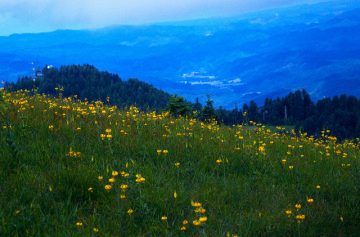
Photo Credit: Marys Peak ACEC from flickr/ Creative Commons
We are excited to announce that RES PhD Candidate Michael Lathuillière and IRES Associate Professor Mark Johnson have published a new article titled “Land use in LCA: including regionally altered precipitation to quantify ecosystem damage” in the journal Environmental Science and Technology. The article can be found below:
http://pubs.acs.org/doi/abs/10.1021/acs.est.6b02311

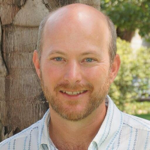
From left: Michael Lathuillière and Mark Johnson

Photo credit: matryosha from flickr/Creative Commons
Colin Levings, an IRES Adjunct Professor, has published a new book with UBC Press. “Ecology of Salmonids in Estuaries Around the World- Adaptations, Habitats and Conservation” covers ecology of salmon, trout, and char species, describes physical and chemical aspects of estuaries and their habitats, outlines estuarine salmonid communities in the northern and southern hemispheres, has a major chapter on conservation and an extensive reference list. On line appendices provide supplemental references, data tables and a primer on estuaries and salmonids for citizen scientists. See ubcpress.ca for more details on the book including Table of Contents, sample chapter and endorsement.
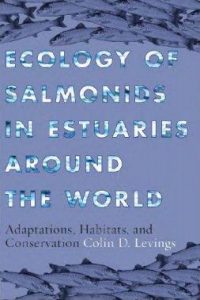
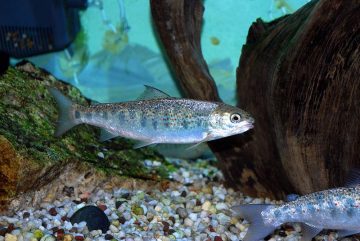
Photo credit: US Fish and Wildlife Service from Creative Commons
October 11 2017
| As part of national Responsible Investment Week, the Centre for Corporate Governance and Sustainability at SFU Beedie School of Business and the Peter P. Dhillon Centre for Business Ethics at UBC Sauder School of are co-hosting an event on “Reconciliation: A New Relationship for Investors”.
The Truth and Reconciliation Commission of Canada called upon the corporate sector in Canada to adopt the United Nations Declaration on the Rights of Indigenous Peoples as a reconciliation framework and apply its principles, norms, and standards to corporate policy. This included specific reference to obtaining the free, prior and informed consent of Aboriginal peoples before proceeding with economic development projects. The Commission also recommended that businesses “ensure that Aboriginal peoples have equitable access to jobs, training, and education opportunities in the corporate sector, and that Aboriginal communities gain long-term sustainable benefits from economic development projects.”
The panel will discuss the role Canadian investors can play in supporting public companies as they address these recommendations and work to build new relationships with Indigenous communities in Canada.
Join Stephanie Bertels, Director of the Centre for Corporate Governance and Sustainability, and Christie Stephenson, the Executive Director of the Dhillon Centre for Business Ethics, and our panelists:
- Max Skudra, Director of Research and Government Relations, Canadian Council for Aboriginal Business
- Cynthia Callison, founding partner of Callison & Hanna law firm, which helps Indigenous communities negotiate innovative agreements
- Peter Chapman, Executive director of SHARE (the Shareholder Association for Research and Education), which recently released a report on business and reconciliation
- Heather Lawrence, Global Manager of Indigenous Affairs, Teck Resources
|
| Complimentary, RSVP required. |
|
|
|
|

Photo Credit: Anthony Easton from flickr/ Creative Commons
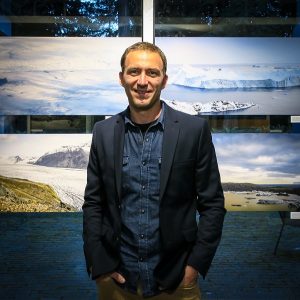
A hearty congratulations to Graham McDowell, who was awarded a Vanier Canada Graduate Scholarship for his doctoral studies on adaptation to glacial change in high-mountain social-ecological systems.
October 4 2017
On behalf of Undergraduate Research Opportunities, we would like to invite you to our 3rd annual Life Sciences Research Night, held in collaboration with six other undergraduate life sciences clubs. A mingling session will take place on the evening of Thursday, November 16, 2017 from 7:15 – 8:30pm. We are inviting you to this session to present your research to the attending undergraduate students.
A major component of our event is having graduate students and research professors bring their posters for a mingling session where undergraduate students can explore various types of life sciences research occurring at UBC. We are hoping to extend an open invitation to all active research professors and their graduate students in the Department of Institute for Resources, Environment and Sustainability.
The 2017 Life Sciences Research Night hopes to promote undergraduate research and showcase the diversity of life science research at UBC. If you are interested in attending this mingling session, we encourage you to bring a research poster and to reply to this email: ubc.lsrn.2016@gmail.com to confirm your presence by midnight October 25. Light dinner will also be provided at the event. We hope to see you there!

.
The POLIS Project has just released its new research report “Top 5 Water Challenges that will Define BC’s Future”.
The report is co-authored by IRES alumna Rosie Simms. This is the link to download the full report and media release: http://poliswaterproject.org/topfivechallenges
Top 5 Water Challenges that will Define BC’s Future documents dozens of examples of critical water issues unfolding in the province’s watersheds. Drawing on an extensive review of media, court and tribunal cases, and insights from attending over 100 recent events related to water issues, the study identifies five key water challenges and suggests possible solutions to create water security and sustainability in BC over the coming years.

Photo credit: Tim Geers from flickr/Creative Commons
September 28 2017
We are writing to provide you with information about the Government of Canada Oceans Protection Plan, and invite you to participate in an introductory engagement session.
The Oceans Protection Plan is the largest investment ever made to protect Canada’s coasts and waterways. This national strategy will help establish a worldleading marine safety system that provides economic opportunities for Canadians today, while protecting our coastlines for generations to come. The Oceans Protection Plan has four main priority areas: increasing our capacity to
prevent and improve responses to marine incidents; preserving and restoring marine ecosystems and habitats; strengthening partnerships with Indigenous and coastal communities: and, ensuring Canada’s marine safety system is built on a stronger evidence base, supported by science and local knowledge.
The upcoming engagement session will provide an overview of the Oceans Protection Plan in British Columbia with a focus on the following initiatives:
Enhanced Maritime Situational Awareness
Proactive Vessel Management and Anchorages
Coastal Environmental Baseline Program and Assessment of Marine Shipping
Impacts
Pilotage Act Review
Other initiatives may be added as well. A full-day session is being planned for November 2, 2017, in Vancouver. To register for the session please contact OPPPacreg-PPOPacenreg@tc.gc.ca by October 5th. Space may be limited. Additional details will be available in the coming weeks.
Click here for Oceans Protection Plan
And for more information go to: www.canada.ca/protecting-our-coasts
Click here for the Oceans Protection Plan Information

Photo Credit: Chris Loczkow from flickr/ Creative Commons

